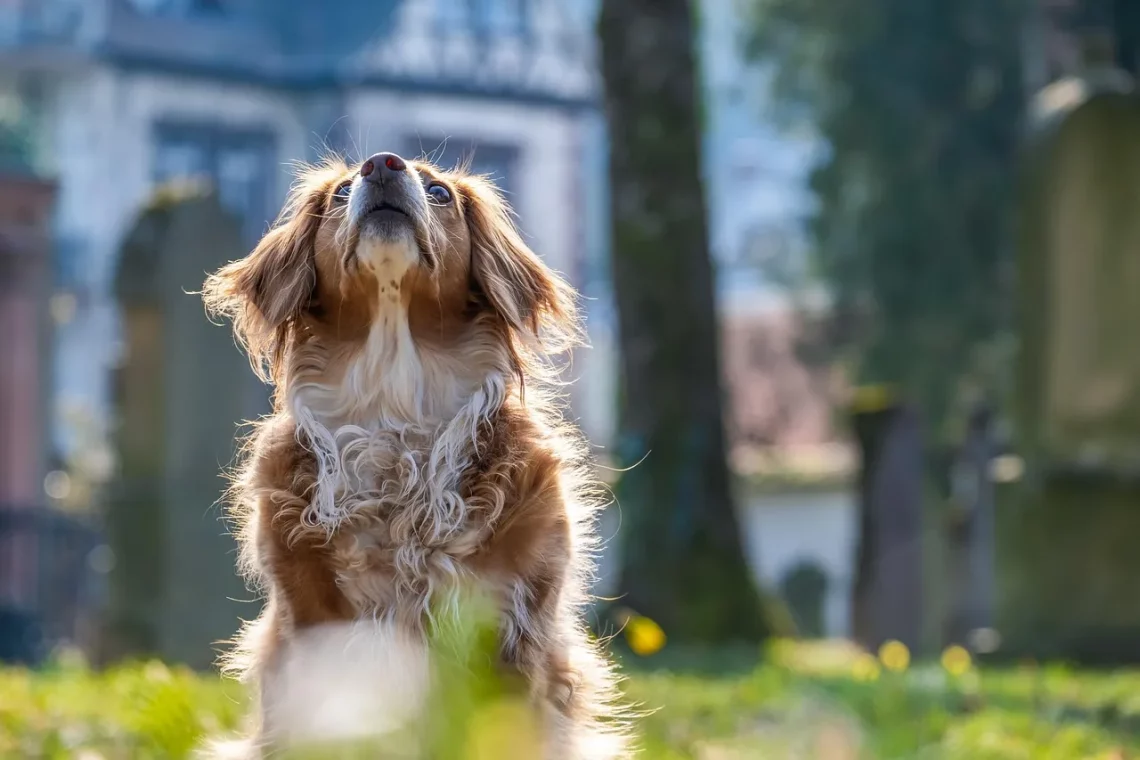
Understanding Dog Behavior Changes After Vaccination
Vaccinations are an essential part of responsible pet ownership, providing a layer of protection against various diseases that can affect dogs. However, many pet owners report noticing behavioral changes in their furry friends following vaccination. These changes can range from mild lethargy to more pronounced shifts in temperament or energy levels. Understanding these behaviors is crucial for pet owners, as it helps to decipher what is normal and what may require further attention.
Dogs, much like humans, can experience a range of reactions after receiving a vaccine. These reactions can be influenced by several factors, including the dog’s age, health status, and the type of vaccine administered. While some dogs may bounce back quickly, others might take a bit longer to regain their usual vigor. This variability can lead to concern among pet owners, prompting the need for a deeper understanding of dog behavior in the context of vaccination.
Behavioral changes can also stem from the stress associated with vet visits, which often include other stimuli such as unfamiliar environments and sounds. Recognizing that a dog’s behavior might change in the short term after vaccination can help owners provide the necessary comfort and support. This article delves into the various aspects of dog behavior changes following vaccination, exploring the potential causes, typical reactions, and how best to support your pet during this time.
Common Behavioral Changes Observed After Vaccination
After a dog receives a vaccination, it is not uncommon for owners to observe certain behavioral changes. These can manifest in various ways, often depending on the individual dog and their unique temperament. A common reaction is temporary lethargy. Many dogs may appear more tired than usual, opting to rest rather than engage in their normal playful activities. This response can be attributed to the immune system’s activation as it responds to the vaccine.
Some dogs might also exhibit changes in appetite. While many will continue to eat normally, others might show a decreased interest in food, which can be concerning for their owners. This is generally a short-lived phase, but it is vital to monitor your dog’s eating habits closely. If the lack of appetite persists for more than a day or two, it may be wise to consult your veterinarian.
In addition to lethargy and changes in appetite, some dogs may become more irritable or withdrawn. This behavioral shift can be a response to discomfort or mild pain at the injection site. Dogs communicate their discomfort in various ways, and it’s essential for owners to be attentive to any signs of distress. Keep in mind that while some level of irritability is typical, any sudden or extreme changes in behavior warrant a conversation with a vet.
Moreover, dogs that are typically social may become more reserved or anxious following vaccination. This change could be due to the stress of the vet visit or the physical sensations they are experiencing post-vaccination. Providing a calm and reassuring environment can help alleviate their anxiety. If your dog seems particularly anxious or fearful, consider engaging in gentle play or providing comforting interactions to help them feel secure.
Understanding the Underlying Causes of Behavioral Changes
To better comprehend why dogs exhibit behavioral changes after vaccination, it is essential to consider the underlying physiological and psychological factors at play. Vaccines stimulate the immune system, prompting it to produce antibodies that will protect the dog from specific diseases. This immune response can lead to temporary discomfort, which may manifest as changes in behavior.
The stress associated with vet visits can also be a significant contributor. For many dogs, a trip to the vet can be a source of anxiety. The unfamiliar environment, the presence of other animals, and the various sounds can all contribute to a heightened state of stress. This stress can exacerbate any discomfort experienced after vaccination, leading to changes such as reluctance to engage in normal activities or increased irritability.
Additionally, individual differences in temperament play a vital role in how dogs react post-vaccination. Just as some humans might feel more fatigued or irritable after receiving a vaccine, so too can dogs. Factors such as age, previous health conditions, and the dog’s baseline behavior can influence their post-vaccination behavior. Young puppies, for instance, may be more prone to lethargy as their immune systems are still developing.
It is also worth noting that some vaccines can cause mild, transient side effects that may further impact behavior. For example, certain vaccines might cause slight fever or discomfort at the injection site. These physical symptoms can understandably lead to a dog feeling less energetic and more withdrawn.
Understanding these underlying causes can help pet owners respond more effectively to their dog’s needs during this time. Being patient and offering comfort can make a significant difference in how quickly a dog returns to their usual self.
How to Support Your Dog During Recovery
Supporting your dog during the recovery period following vaccination is crucial for their well-being. The first step is to create a calm and comfortable environment at home. Providing a cozy space where your dog feels safe can help alleviate some of their stress and discomfort. Make sure they have access to their favorite blankets or toys and allow them to choose where they want to rest.
Monitoring your dog’s behavior and health closely is essential. Keep an eye on their energy levels, appetite, and any unusual signs of distress. If your dog is lethargic for more than a day or exhibits other concerning symptoms, such as vomiting or diarrhea, it is crucial to consult your veterinarian for advice.
Hydration is another critical aspect of recovery. Ensure your dog has access to fresh water at all times. Sometimes, a dog’s appetite may decrease, but encouraging them to drink can help maintain their overall health. You can also try offering wet food if they seem disinterested in dry kibble.
Engaging your dog in gentle, low-energy activities can also be beneficial. Short, easy walks or light playtime can help keep their spirits up without overwhelming them. Pay attention to their cues; if they seem tired or uninterested, allow them to rest.
Additionally, providing extra affection and attention during this time can help your dog feel more secure. Simple acts like gentle petting or quiet time together can go a long way in reassuring them.
When to Seek Professional Advice
Although many behavioral changes after vaccination are mild and temporary, there are instances when seeking professional advice is necessary. If your dog exhibits severe lethargy that lasts more than a day, or if they show signs of pain or discomfort that seems excessive, it is essential to consult with your veterinarian.
Other concerning signs include persistent vomiting, diarrhea, or any unusual swelling, particularly at the injection site. These symptoms could indicate an adverse reaction to the vaccine, which requires immediate medical attention.
Additionally, if your dog is displaying extreme anxiety or aggression that is out of character, this may warrant a discussion with your vet. They can help assess whether these behaviors are linked to the vaccination or if there might be other underlying issues at play.
In cases where behavioral changes seem to persist beyond the typical recovery period, a vet visit is advisable. A professional can provide insights into whether additional medical evaluations are necessary or if behavioral training might be beneficial.
In conclusion, understanding the changes in your dog’s behavior after vaccination is vital for their care. By recognizing these changes, providing support, and knowing when to seek professional advice, you can help ensure your dog’s health and happiness during their recovery.
*Disclaimer: This article is for informational purposes only and is not intended as medical advice. Always consult your veterinarian for health-related concerns.*




